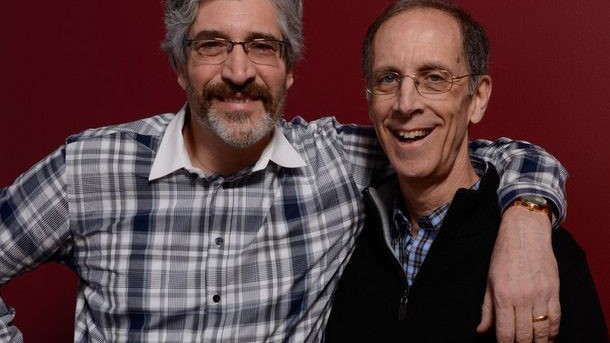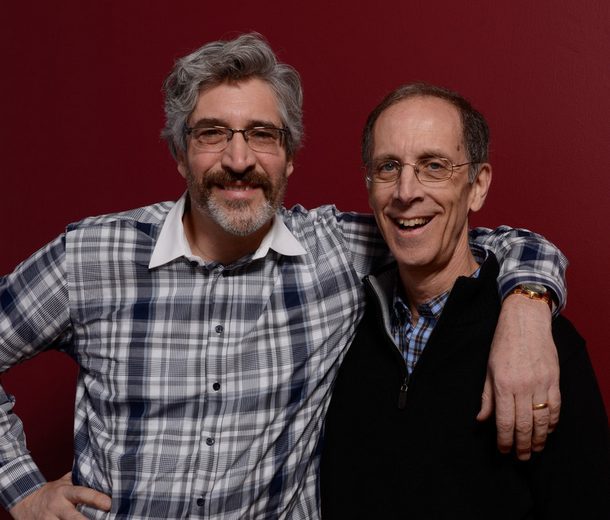[soundcloud url=”https://api.soundcloud.com/tracks/161143654″ params=”color=ff5500&auto_play=false&hide_related=false&show_comments=true&show_user=true&show_reposts=false” width=”100%” height=”100″ iframe=”true” /]
Music is an important part of my life, as I’m sure it is yours. Every day, we’re influenced by the type of music we listen to and fortunately, most of us are able to recall those special memories associated with those songs. Unlocking that inner being is what Director Michael Rossato-Bennett set out to do while filming Alive Inside. With a genius idea from social worker Dan Cohen to incorporate personalized music in nursing homes, Rossato-Bennett is able to capture the “a-ha” moments of senior citizens living with dementia, where recalling any sort of memory is virtually impossible. An award-winning documentary, Alive Inside is an uplifting and inspirational film, which made my exclusive interview with Michael and Dan all the more special, even offering up a touching moment from Michael as he talks about his reasons for choosing the film’s end song, Edward Sharpe and The Magnetic Zeros’ “Man on Fire,” which you can hear in the Soundcloud clip above. We begin:
DID YOU KNOW WHAT YOU WANTED THIS FILM TO BE WHEN YOU BEGAN FILMING, OR DID IT SURPRISE YOU ALONG THE WAY?
MICHAEL ROSSATO-BENNETT: Absolutely surprised me. It started out as a simple job- just creating video clips for a website for Dan [Cohen]. I just saw, lined up against the hallway, literally one hundred people in wheelchairs just sitting there- they looked like they were dead. That’s what Henry was like when he was wheeled in, his head was against his chest. When I filmed Henry reacting to the music that had formed him, I saw this man literally be resurrected. That was the moment for me- tears came to my eyes, I felt it.
Whenever a human being suffers being treated like an object, it’s an assault to the self. If it happens every day for 10 years, you just slip away, you fade away into nothingness. What Dan is doing with this project is throwing them a lifeline, he’s giving them a piece of their self and it’s the most profound piece of the self that anyone can have. Music that made us when we were young, it lives in us in a phenomenally powerful way.
I learned something very powerful; these people don’t have their memory, there is a lot of functionality they don’t have. When I first started this project, I saw them as dead. But what I learned, and music was the teacher…is that there’s a life inside each of those people. There’s a movie that plays inside each of their heads that will disappear when they go. I never thought about these things until this project.
DID YOU FIND THAT SOME OF THE SENIORS WERE NOT RECEPTIVE TO THE TECHNOLOGY AT FIRST?
DAN COHEN: I don’t think it’s so much “the technology,” it’s really just the music. That’s part of the reason why nobody really thought of this, if it’s technology we just think, ‘Oh, [seniors] aren’t going to want to do it.’ It does work most of the time.
HOW DID YOU NARROW DOWN WHAT STORIES TO FOLLOW IN THE FILM?
MRB: This whole endeavor is seeking and following emotion. That’s what Dan is doing, he’s saying ‘What song touches your emotions the deepest’ and then he’s just trying to find them and give them to these people. That’s it. It’s so simple. As a filmmaker, that’s what I do. I just watched, and looked, and if it touched me emotionally, it ended up in the film.
I HEARD THERE’S TALK OF AN “ALIVE INSIDE” APP…
MRB: Yes, I was in a conference call today. We’re getting very close. This is not going to be the “be all and end all” of apps, it’s just a tool to support a connection between the young and the old. We wanna do a reach into schools and churches that will aid a conversation about the themes in this film… We have no conversation about the wisdom that comes with age. It’s a taboo subject in our culture. It’s called the Alive Inside app, and it’ll be out very soon.
WHAT MUSIC WOULD YOU HAVE ON YOUR PLAYLISTS?
DC: 60’s music. Beatles, Stones, Led Zeppelin, James Taylor, Peter, Paul & Mary, and the Beach Boys.
MRB: My taste goes from Philip Glass to Joanna Newsom to Pavarotti, to Bach. Jeff Buckley to Björk. I don’t know if I’m gonna be 95 and listening to Björk, but I’ll certainly be listening to Johnny Cash and Willie Nelson. And The Beatles, I’ll never not listen to The Beatles.
THE EDWARD SHARPE AT THE END, WAS THAT A PERSONAL PREFERENCE OR DID YOU HAVE A REASON FOR CHOOSING THAT?
MRB: Absolutely, there’s a line in the film that says, ‘Everybody wants safety but not me, I’m a man on fire.’ I’m a little overcome here. I think nursing homes are our attempt at safety. Nursing homes are amazing, we could let our elders and our sick elders just die on the streets like Elizabethan England, but we don’t. It comes from our desire to create safety for these people, and it’s just a little misguided. Drugs are not the safety for these people, their deep selves are the safety and that’s why Edward Sharpe is in there, because he says it. He says, ‘I’m a man on fire,’ and fire burns and you have to be willing to stand up to the flame to really change.
WHAT WAS YOUR SUNDANCE EXPERIENCE LIKE?
MRB: I wasn’t eve going to submit it. [The registration fee] was $100 and I didn’t have $100 at that time. My wife made me do it and we go it, and I thought that was the end of the story. I thought it was the greatest victory. 12,000 films were submitted, and they pick 16 for competition in American Documentaries. The numbers were against us, but the experience was amazing. Sitting in a room with 800 people and seeing grown men literally weeping, not for sadness, but from some sort of connection that they were feeling. To win, that means that we were the film that people had the most emotional reaction to. It told us that people are interested in this story.
Morgan Rojas
Certified fresh. For disclosure purposes, Morgan currently runs PR at PRETTYBIRD and Ventureland.




love these two geniuses